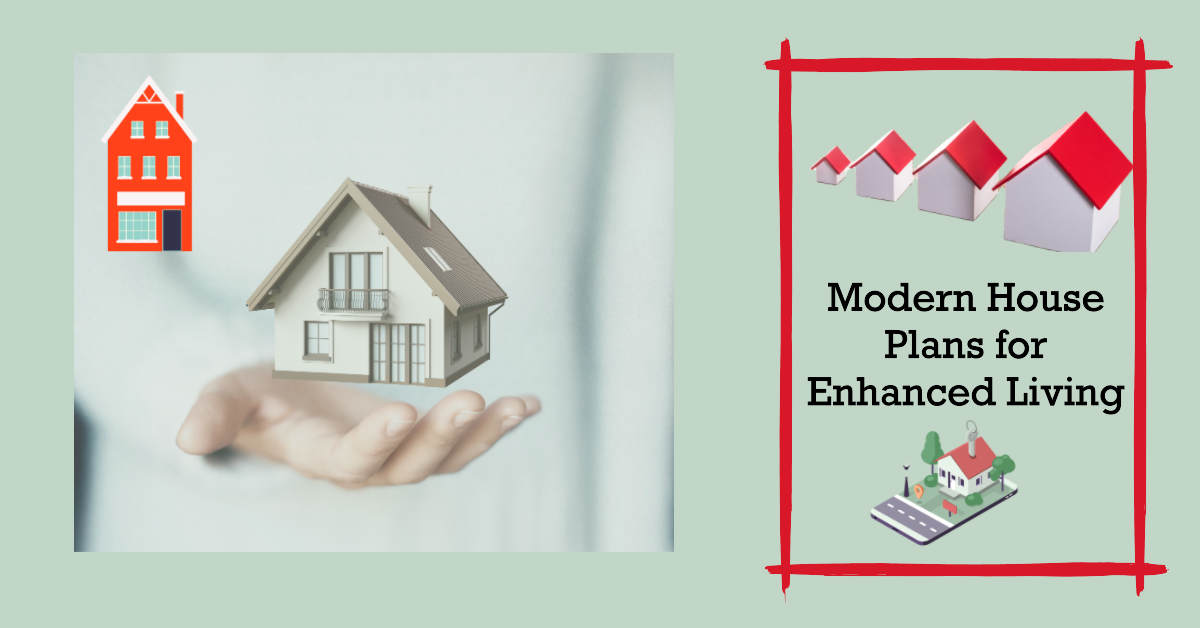In the world of home design, innovative concepts constantly emerge to redefine modern living. One such concept gaining popularity is the closed-concept house plan. With its ability to transform living spaces into seamless, functional environments, closed-concept house plans offer a multitude of benefits for homeowners. In this article, we will explore how closed-concept house plans enhance modern living, examining their impact on space utilization, privacy, social interaction, and flexibility.
Space Utilization: Embracing Efficiency and Flow
Closed concept house plans excel in optimizing space utilization, and creating efficient layouts that enhance the overall flow of a home. By eliminating unnecessary walls and partitions, these plans create an open and uninterrupted environment, allowing rooms to seamlessly blend into one another. With a more expansive layout, homeowners can enjoy an enhanced sense of spaciousness, reducing any feelings of confinement and enhancing comfort.
Enhanced Natural Light
One of the advantages of closed-concept house plans is the abundant natural light they allow to flow throughout the space. With fewer walls obstructing the path of sunlight, rooms are flooded with brightness and warmth, creating an uplifting atmosphere. This influx of natural light not only benefits the overall aesthetic of the house but also contributes to energy efficiency by reducing the need for artificial lighting during the daytime.
Versatile Furniture Arrangements
Another key aspect of closed-concept house plans is their versatility in accommodating various furniture arrangements. Without the constraints of walls, homeowners have the freedom to configure their living spaces in ways that suit their preferences and needs. Whether it’s rearranging furniture for a social gathering or creating a cozy reading nook, the flexibility offered by closed-concept house plans allows homeowners to adapt their surroundings to their ever-changing lifestyles.

Privacy: Finding Solitude in Open Spaces
A common misconception surrounding closed-concept house plans is that privacy may be compromised due to the absence of walls. However, with strategic design considerations and thoughtful spatial arrangements, these plans can effectively provide a sense of privacy while still maintaining an open and inviting environment.
Zoning with Areas of Retreat
To ensure privacy in closed-concept house plans, designers often employ the concept of zoning, dividing the space into separate areas that serve distinct purposes. By segregating social spaces from private areas such as bedrooms or workspaces, individuals can easily retreat to a secluded zone when seeking solitude. Additionally, the use of room dividers, such as sliding doors or curtains, offers the flexibility to create intimate spaces as desired, without sacrificing the overall openness of the dwelling.
Acoustic Control Measures
Privacy is not solely limited to visual barriers; it also entails controlling sound transmission within the living environment. To address this, closed-concept house plans often incorporate acoustic control measures. Materials such as sound-absorbing panels, carpets, and curtains help minimize noise propagation, enabling individuals to enjoy a peaceful and private atmosphere within the interconnected spaces afforded by these plans.
Social Interaction: Fostering Connection and Togetherness
Contrary to the misconception that closed-concept house plans hinder social interaction, they actually promote a sense of connection and togetherness among occupants. These plans foster an environment that encourages interaction, making them ideal for families or individuals who value a sense of unity and togetherness.
Facilitating Uninterrupted Conversations
One of the key benefits of closed-concept house plans is the way they facilitate uninterrupted conversations. Without walls obstructing the view or impeding the flow of communication, individuals can effortlessly engage in meaningful discussions even while involved in different activities. Whether it’s catching up with family members during meal preparations or entertaining guests while attending to household chores, closed-concept house plans enable seamless communication, enhancing social interaction and creating a nurturing atmosphere within the home.
Multi-functional Gathering Spaces
Closed-concept house plans often feature multi-functional gathering spaces that serve as hubs for social activities. These shared areas, such as open kitchens or expansive living rooms, not only provide ample space for bonding but also encourage collaborative activities. From hosting family game nights to organizing group activities, these versatile spaces promote an inclusive environment, fusing different aspects of daily life into a cohesive whole.
Flexibility: Adapting to Changing Needs
Another aspect that distinguishes closed-concept house plans is their innate flexibility, allowing homeowners to adapt the space to their evolving needs over time. These plans offer versatility that ensures a home can easily accommodate changes in lifestyle, family dynamics, and personal preferences.
Adaptable Living Spaces
The absence of walls in closed-concept house plans allows for adaptable living spaces that can be customized to suit individual needs. This adaptability empowers homeowners to repurpose areas as their requirements change, whether it’s transforming a study into a nursery or converting a guest room into a home office. With closed-concept house plans, a home can effortlessly adapt to the ever-evolving demands of its occupants.
Future-Proof Design
Closed-concept house plans incorporate design principles that anticipate future needs, ensuring long-term functionality. By considering potential alterations and additions, these plans provide a solid foundation for expansion or renovation, enabling homeowners to easily modify their living space without the need for significant structural modifications. This future-proofing aspect of closed-concept house plans enhances modern living by allowing homes to grow and evolve alongside their occupants.
Conclusion
Closed-concept house plans offer a myriad of advantages that enhance modern living. From optimizing space utilization and promoting efficient flow to providing privacy without sacrificing openness, these plans create an environment that fosters connection, adaptability, and flexibility. By embracing closed-concept house plans, homeowners can embrace a modern living experience that brings together functionality, aesthetics, and a sense of togetherness, ultimately enriching their daily lives.

Sue Clifford is a Minnesota-based personal finance expert with more than 25 years of experience in the money management industry. A CFP(Certified Financial Planner) and an Accredited Financial Counselor, Clifford is a leader in the industry and a passionate advocate for financial literacy. She writes a finance blog on topics such as budgeting, debt management, retirement savings, investing and financial planning, drawing on her professional experience and personal experience in money management. With an accessibility and a commitment to financial literacy, Sue Clifford’s financial blog is sure to offer useful insight and advice for anyone looking to take control of their financial future.





